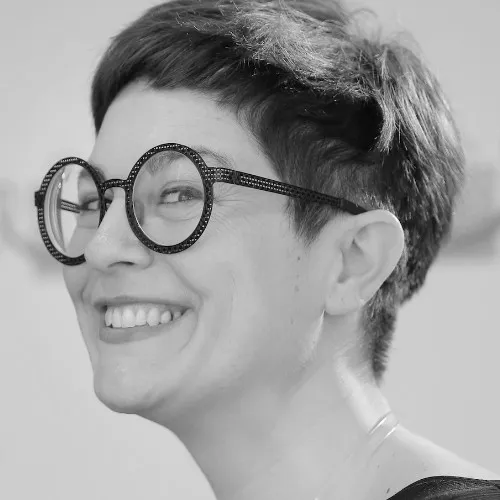Sonia
Massari

Director Future Food Academy
Sonia Massari is the Academic Director at the Future Food Academy. .Dr. Sonia Massari has more than 20 years of experience as an educator, researcher, consultant, and designer in the fields of human-food interaction design, sustainability education, design thinking and creative methods for innovative agri-food systems. She currently is a Research Fellow at Department of Agriculture, Food and Environment (PAGE) at the University of Pisa; senior consultant at the Barilla Foundation and co-founder of the FORK Food Design Organization, an international no-profit organization dedicated to food+design. Professor at ISIA Design School – graduate course: “Design for sustainable scenarios”- she taught for 5 years at Roma Tre University – a graduate course called “Sustainability Design Thinking” (from 2017 to 2022). In addition, she is a faculty member and visiting professor in several European universities (New School, RBS, BBS, ESTHE, University of Illinois Urbana Champaign; UMASS Amherst, to mention a few). She holds a Ph.D. in Food Experience Design from the Engineering Department at the University of Florence and she has authored 50+ publications in scientific journals, reports, books, as well as articles in magazines. The title of her last book is: “Trans-disciplinary Case Studies on Design for Food and Sustainability” (2021, Elsevier). She is Vice President of ASFS ( Association for the Study of Food and Society), and serves on the editorial board of the International Journal on Food Design.
COURSES
Being able to “connect the dots” to design and innovate food processes, systems, and products. How do we harness creativity and technology to address today’s agribusiness challenges? How can we generate cultural and social innovation through design? This module introduces the Design method applied to the world of food and agriculture, where the designer is increasingly involved in re-designing the value chain of food systems. This module analyzes transdisciplinary and successful case studies on food and design, using the Empathy-Systems Thinking Mindset and toolkit for the Food Sector. The course delves into sustainable food production and waste valorization. Participants will discover strategies to reduce food waste, optimize resource utilization, and promote eco-friendly practices in the food industry. The course emphasizes the value of utilizing food by-products and waste streams to establish a circular economy model.
Food Innovation and RegenerationQuesto modulo offre un’analisi completa delle strategie e dei framework che promuovono l’innovazione all’interno delle organizzazioni. Come applicare in pratica un approccio ecosistemico che abbracci la diversità e la prosperità? Dal Stage and Gate al Systems Thinking. Il modulo introduce come risolvere i problemi, ma, cosa ancora più importante, come identificare opportunità e dinamiche in un processo di innovazione. Imparerai a gestirlo sfruttando l’analisi user-centered, le tecniche di co-creazione e le procedure scientifiche e lean nello sviluppo alimentare. Il corso esplora, con esempi pratici nell’industria alimentare, l’applicazione del Design Thinking, delle metodologie Agile, Stage-Gate e Lean Startup come metodologie di innovazione di spicco. Il corso esamina anche il ruolo della cultura organizzativa nel promuovere l’innovazione, sottolineando l’importanza di creare una cultura favorevole all’innovazione che incoraggi la sperimentazione, accetti il fallimento come opportunità di apprendimento e ricompensi il comportamento imprenditoriale. I partecipanti saranno dotati di strumenti pratici e framework per guidare l’innovazione all’interno delle organizzazioni e affrontare le sfide di un contesto aziendale in rapida evoluzione.
Food Innovation and Regeneration